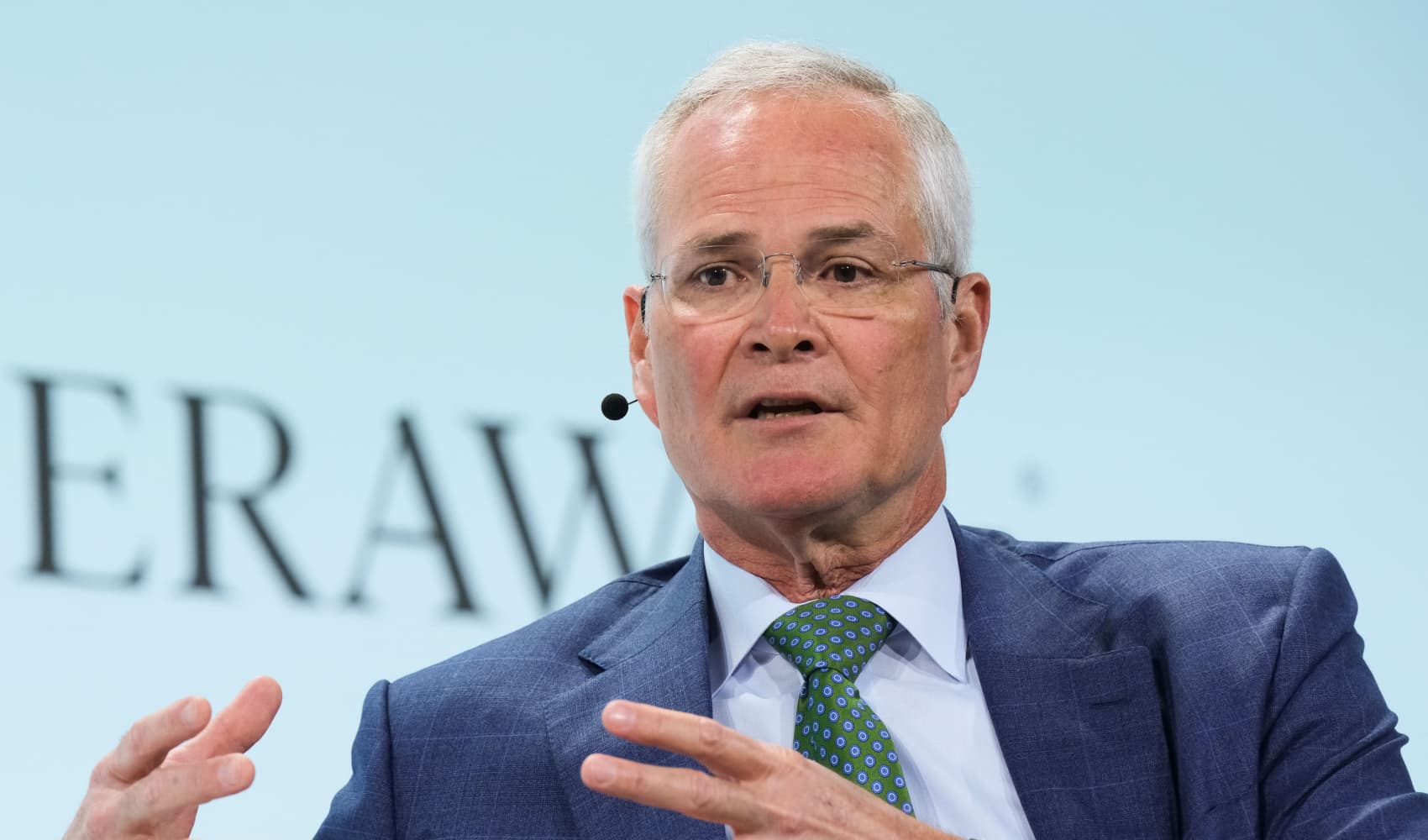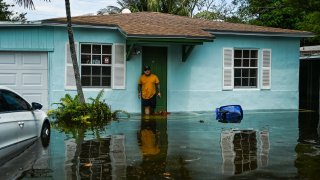
- The warming planet is proving costly for many Americans.
- U.S. weather and climate disasters cost more than $600 billion between 2018 and 2022 — a record figure, according to the U.S. Department of Treasury.
- In a new series, CNBC will examine what climate change means for your money, from retirement savings to insurance costs to career outlook.
The warming planet is already proving expensive.
U.S. weather and climate disasters cost more than $617 billion between 2018 and 2022 — a record figure, according to the U.S. Department of the Treasury. The October report found that around 13% of Americans reported economic hardship over the prior year due to climate change.
More people are likely to experience financial pain as temperatures climb and extreme weather events become more common, experts say.
Get San Diego local news, weather forecasts, sports and lifestyle stories to your inbox. Sign up for NBC San Diego newsletters.
With each additional degree of warming, the U.S. is expected to take a bigger economic hit, the Fifth National Climate Assessment warns. For example, an increase in global temperatures by 2°F is anticipated to double the financial impact induced by 1°F of warming.
Climate change could cost Americans born in 2024 nearly $500,000, due to higher taxes and pricier housing and food, among many other factors, ICF, a consulting firm, recently found in a report commissioned by Consumer Reports.
"The basic building blocks of our financial lives — housing, insurance, social welfare programs, taxes — will become more expensive or less valuable due to climate change, with lots of consequences for people's wallets," said Andrew Rumbach, a senior fellow at the Urban Institute.
Money Report
'Climateflation' is already affecting prices
As the reporters on CNBC's personal finance team set out to understand the impacts of global warming on household finances, it was hard to find an area that wouldn't be touched.
More from Personal Finance:
Series I bonds 'still a good deal' despite expected falling rate, experts say
Biden administration releases its new student loan forgiveness proposal
Why a $100,000 income no longer buys the American dream in most places
Economists already have a term to describe how a hotter planet is pushing up prices: "climateflation." Food inflation alone could rise by as much as 3 percentage points per year over the next decade due to environmental changes, one study found.
"Climate change leads to droughts, which lead to crop failures, which cause food price spikes," said Gernot Wagner, a climate economist at Columbia Business School.
'Household wealth is tied to housing' — and that's risky
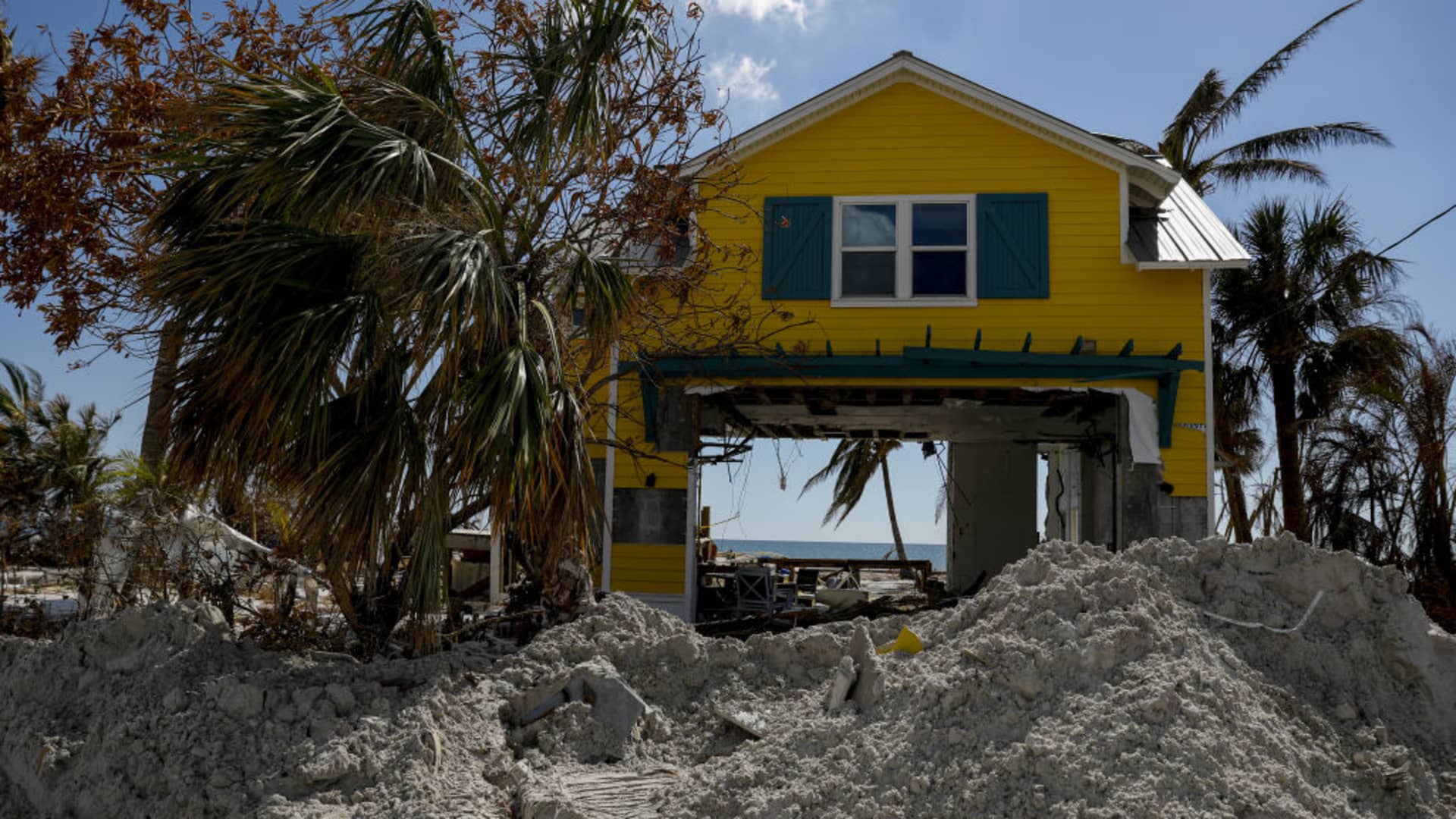
Some of the biggest financial risks of climate change come into play with housing, Wagner said.
"Most household wealth is tied to housing, which [is] directly affected by everything from floods to droughts to wildfires," he said.
At least 3 million Americans already report being displaced by a disaster, one survey by the U.S. Census Bureau found.
"That is tremendously costly for people and businesses," Urban Institute's Rumbach said.
Insurance companies are raising their monthly premiums on homeowner policies and rolling back coverage in areas prone to certain disasters to "adjust to climate risk," he said.
"Florida, Louisiana and California are all facing severe challenges, and I expect these issues will spread to other states in the years ahead," Rumbach said.
Globally, natural catastrophes cost insurers $108 billion in 2023, which is well above the annual average over the past 10 years of $89 billion, according to Swiss Re Institute. The institute estimates these losses could double within the next decade, as temperatures rise and storms intensify.
These costs are likely to be passed on to consumers, Rumbach said.
Currently, only around 40% of the expenses from natural catastrophes are covered by insurers, meaning the rest falls on governments and individuals, Swiss Re Institute found.
'Clear interactions' between climate and health
The warming planet could result in larger medical bills for many Americans.
Health-care costs due to fossil fuel pollution and climate change already exceed $800 billion a year in the U.S., a report by the Natural Resources Defense Council found.
Some of these expenses are a direct result of individual, dangerous disasters.
For example, Hurricane Sandy, which pounded the mid-Atlantic region in 2012, led to more than 12,000 hospital admissions, emergency room visits and outpatient encounters.
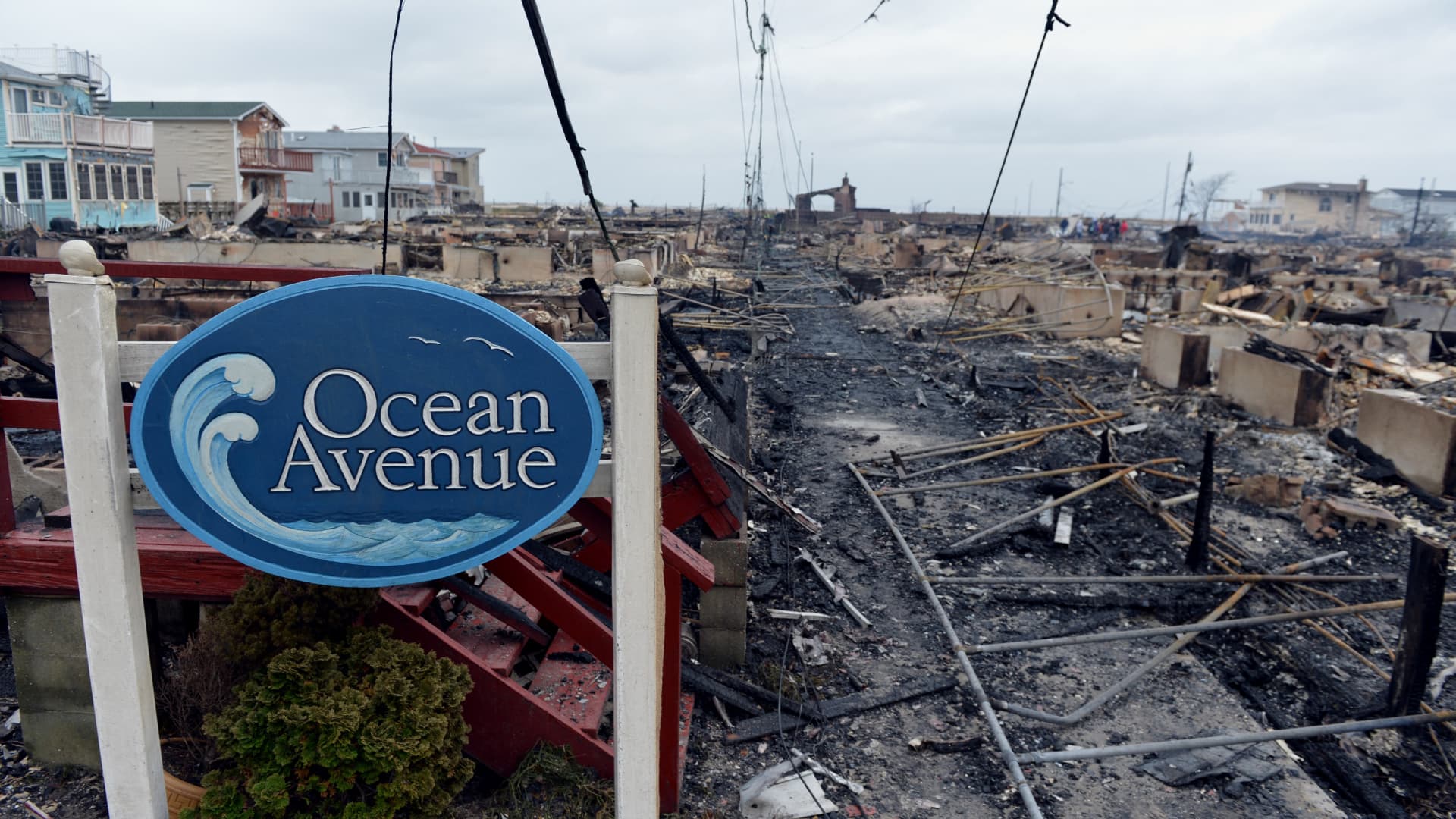
Other health effects of climate change reflect more widespread shifts in global conditions.
"There are clear interactions between heat waves and health conditions," said Charles Driscoll, a professor at Syracuse University who studies climate change. "For example, heat waves exacerbate cardiovascular events."
Air pollution, for its part, is associated with respiratory diseases, cancer and nervous system disorders, Driscoll added.
Knock-on effects for taxes, wages, retirement savings
Federal, local and state governments will likely raise taxes as they deal with the higher costs of a hotter planet and more demand for their services.
At the same time, workers may see their wages shrink as businesses and communities are disrupted by storms and heat waves. Within seven years, up to 3.8% of total working hours around the world could be lost due to higher temperatures, according to the International Labour Organization. That amounts to roughly 136 million full-time jobs.
More than 65 million adult workers in the U.S. are in occupations endangered by climate-related health risks, KFF, formerly the Kaiser Family Foundation, estimated in a July 2023 analysis. These include fields with increased exposure to heat and decreased air quality, including construction and agricultural jobs.
ICF, the consulting firm, warns that global warming could put people's retirement savings in jeopardy, too.
"Climate change is expected to decrease retirement income by impacting the value of corporate stocks held in retirement portfolios through higher costs to companies, declines in corporate productivity, damages to physical assets and supply chains, reduced resource availability and new costs associated with transitioning to low-carbon solutions," it wrote.
A new economy in a hotter planet
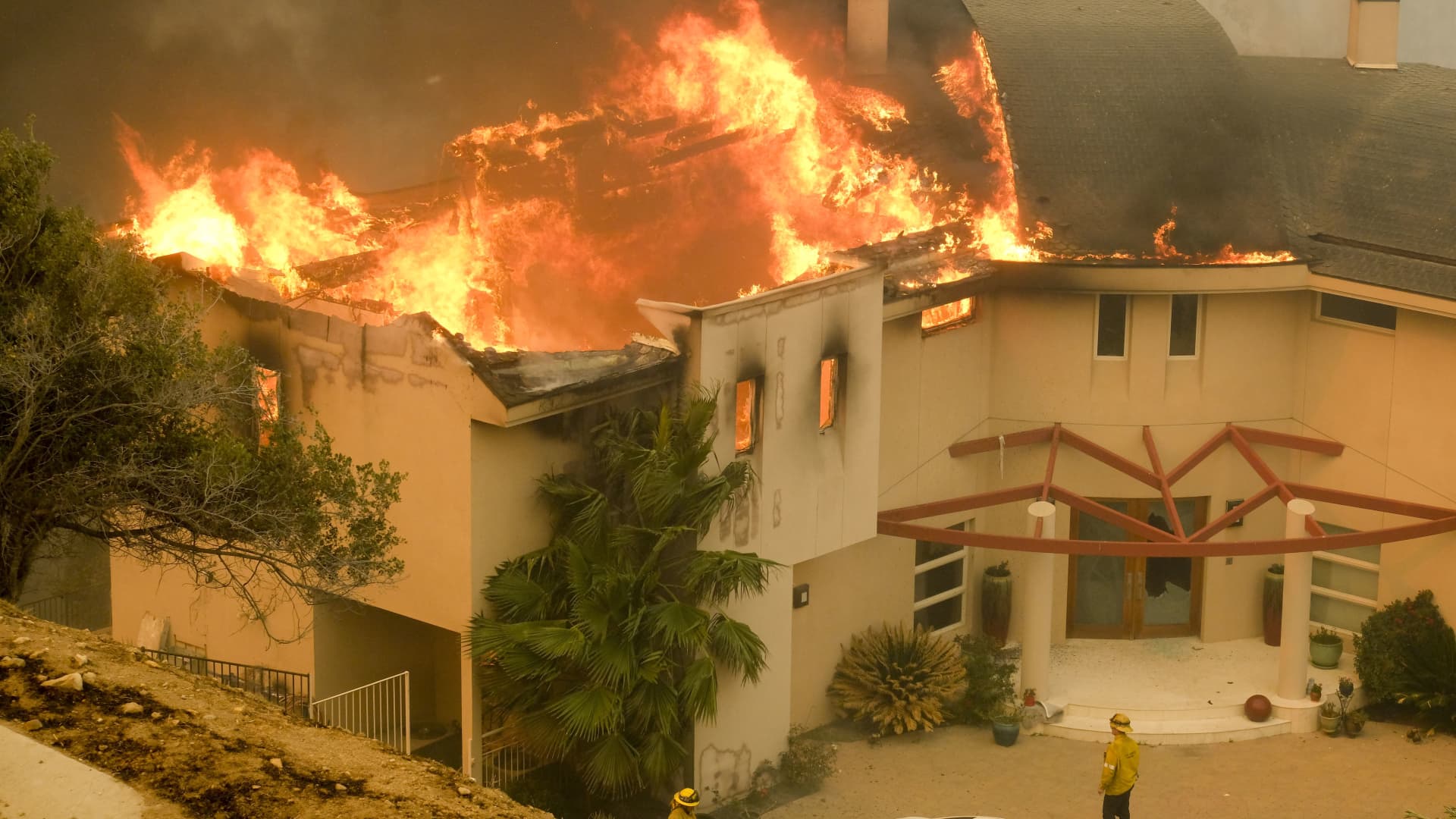
The workforce and education system are changing in anticipation of a hotter planet.
People are switching careers to leave fields threatened by global warming, such as gas and coal, while a small number of colleges are offering a new major: climate change studies.
Schools that offer such majors "are reporting a big increase" in demand, said higher education expert Mark Kantrowitz.
Meanwhile, the number of jobs in climate science is expected to grow by 6% between 2022 and 2032, compared to an average 3% for all occupations, the Bureau of Labor Statistics found.
"Slowing down and stopping climate change is a challenge, but also an opportunity for tremendous innovation and economic growth," Urban Institute's Rumbach said.
In this new series, CNBC will examine what climate change means for your money, from retirement savings to insurance costs to career outlook.
We start with a story by reporter Greg Iacurci on how people continue to build in and move to Miami, despite the city being, in the words of one expert, "ground zero" for global warming. This dynamic is playing out across the country, and could worsen the financial pain ahead.
Has climate change left you with bigger or new bills? Tell us about your experience by emailing me at annie.nova@nbcuni.com.



